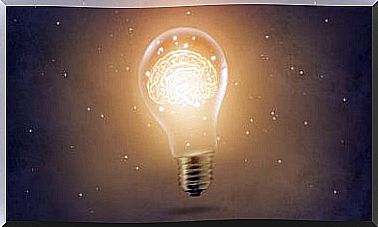Suggestion: What Power Does It Have In Us?

After reading a book, watching a movie, hearing the news or talking about a tragic event, we are more likely to be afraid of it happening to us. For example, if we think of a person who was robbed entering their home, we will generally think that the probability of it happening to us is greater than we previously estimated.
If we see a horror movie where the protagonist is followed by a red car (driven by a murderer), how do you think we will react when we realize that behind us on the road there is a vehicle of the same color? It is not about imagination, being pessimistic or exaggerating, but something called “suggestion. ” In this article we will tell you more about her.
What is suggestion?
If we stick only to the dictionary definition, we could say that suggestion is a psychological process by which people are manipulated through a scene, an image, a word or a situation. But let’s delve a little deeper into this concept.
The term was first discussed in the 19th century, when researchers such as William James indicated that suggestion was used in a very restricted sense. This means that the use of this “technique” was related to saying one idea to suggest another. And this was taken advantage of by the great speakers!
A few years later, thanks to the masters of hypnosis (among them Clark Leonard Hull) knowledge in relation to this action was expanded. The theory says that a person follows a pattern or instruction based on what he hears or sees. Therefore, when we hear a tragic news, it is likely that we think about it for a while, overestimating the possibility of it happening to us.

What power does suggestion have?
This technique not only serves to make us fear or feel in danger, it can also be used to “suggest” that we do or say something in particular. The mind is extraordinary, for the positive and the negative … and in many cases it does not allow us to act as we want. The theory of free will defended by the religious does not agree with the hypothesis of the power of suggestion. In these examples we explain why:
1. It makes us believe that we are smarter
At the University of Washington, researchers gave a group of people a pill while telling them it served to increase their intelligence. It was actually a “placebo” pill and did not enhance cognitive ability. However, the patients increased their alertness and attention, obtaining better results in the tasks that the researchers set them.
2. It “makes us sick”
If, for example, we put a person in a room and we throw smoke (like those at parties) telling him that it is a toxic gas, he is probably short of breath, thinks he is going to die and experiences the symptoms of an intoxicated person.
Without reaching such extreme cases, we can cite another case: when we talk about the Zika virus in the news, when we see a mosquito, we are terrified and if we get bitten by one we can even have a fever and pain in the joints as if it were really a infected insect.
3. It makes us work better
The Hawthorne Effect is one of the best known in the field of suggestion. It is based on the idea that when we are observed we act in a different way. So employees work hard and efficiently when they think the boss is watching.
They have been tested with security cameras that did not work (but the “observed” did not know) and reached this conclusion. If we believe that someone is looking at us… we will do everything better!
4. Change our routine
The power of suggestion is such that it makes us change our habits. For example, after watching the news about a group of thieves assaulting those who enter the house after 10 p.m., we may rush to arrive at 9:30.
5. Condemn an innocent
If, before entering the examination room of a suspect, we hear someone say “I’m sure the thief had a beard,” it is more than likely that we will point to someone who has hair on his face, even if we have never seen it or until a few years ago. minutes we were sure he was hairless. Suggestion changes our memories in such a way that what we have experienced is forgotten.
We do not mean by all this that we are oblivious to making decisions or that there is a superior plan changing our opinions. But it is necessary to understand what role suggestion plays in our daily lives and how we can deal with it. Much of what we believe may just be the product of our imagination!
6. Amulets
The amulets also usually have a great power of suggestion. Who has not ever thought that by not wearing their lucky charm something would go wrong? It is common, especially in students, that they go to an exam with the same pen, or a picture of a Saint, or the same clothes or any object that they think will bring them luck. This valuable object makes us think that we will have more luck or we will be better able to carry out an action. Without a doubt, another form of suggestion that we can observe on a daily basis.

7. “No one approves of that teacher”
Those who have passed through the institute or the University have heard the phrase “with that teacher no one approves” on more than one occasion. What happen? That we condition ourselves in such a way that whatever happens, we interpret it negatively and we are unable to study and pass. Our suggestion is so great that we give up the battle beforehand and after the exam we think: “Well, it wasn’t that bad.” But since we were already suggested, we had not studied with enough interest. Thus, on many occasions it is not the teacher who does not approve, it is our suggestion.









